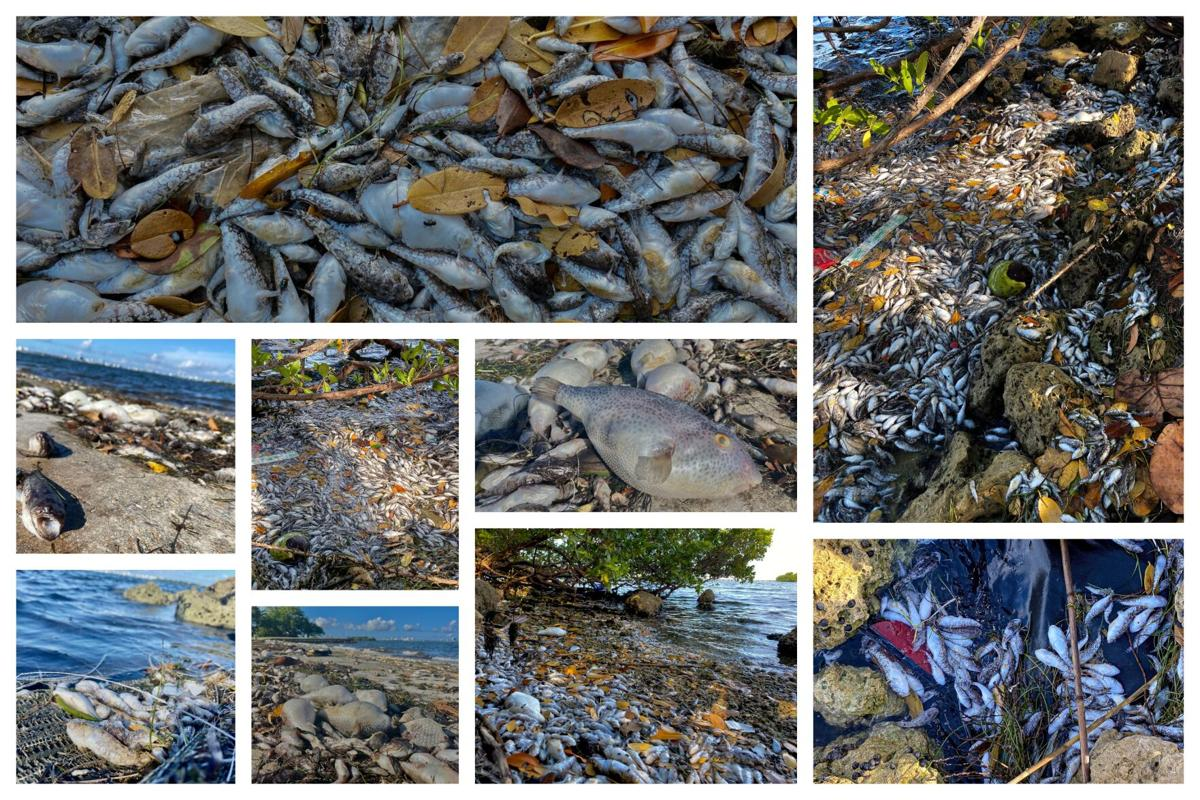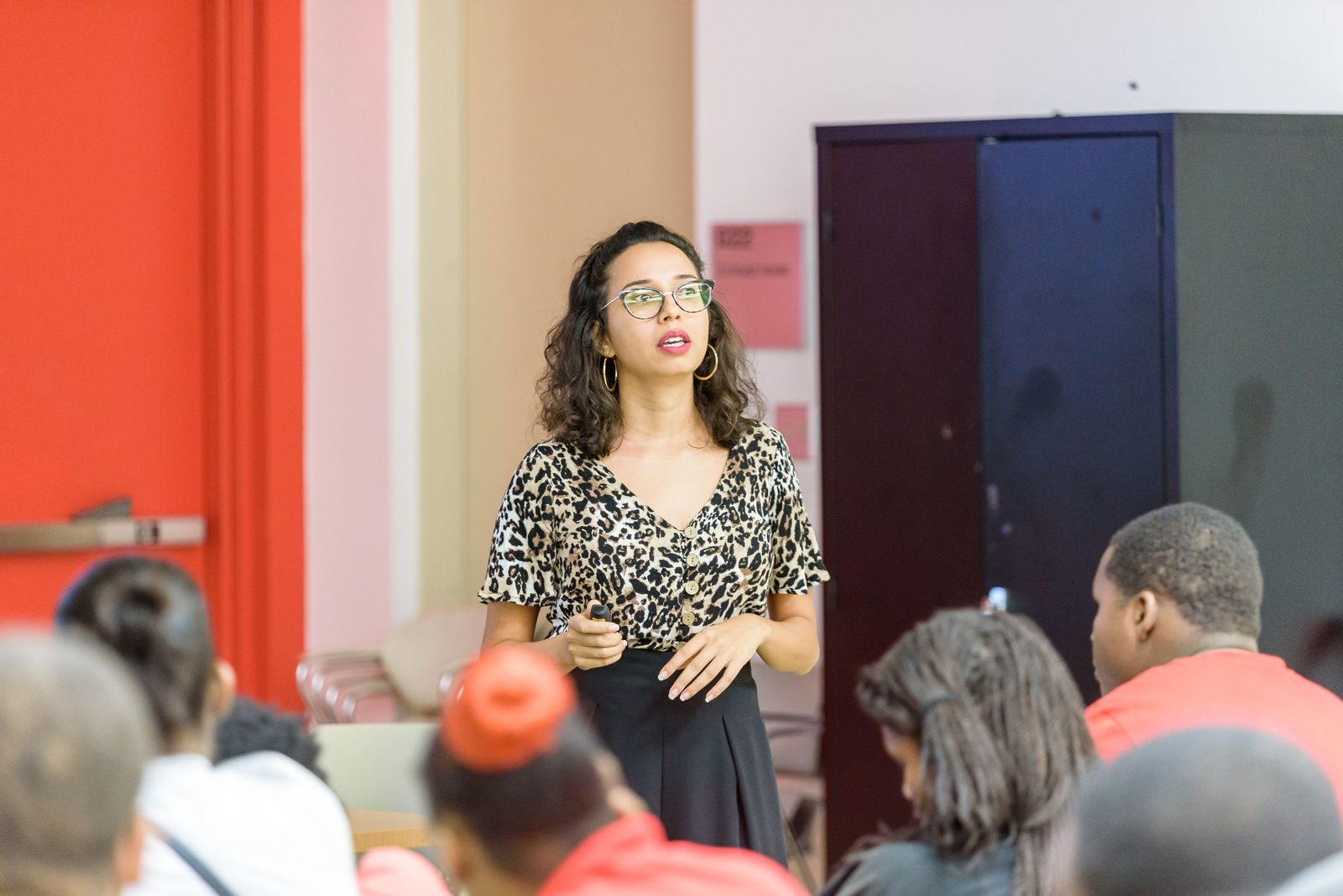Written by: Natalia Brown
High-stake complex issues have come to light in the media and motivated significantly more robust public discourse throughout the course of 2020. This means many of us are reflecting more deeply on our role in society and our bigger-picture contributions to our communities. Bringing that valuable insight to interactions with those around us—whether with family and friends, coworkers or peers, relatives or neighbors—has proven benefits, helping us to holistically understand far-reaching issues like climate change, plastics and marine debris, social and economic justice, public health disparities, or civic engagement.
This week, I sat down with Natalie Rivas to discuss her path to climate communications and education at the CLEO Institute, the ways our organizations are working to address barriers to meaningful community engagement, and top tips for all of us to navigate more difficult day-to-day conversations.
Q: I’d love to learn a bit more about your background. What led you to your current role at the CLEO Institute and education on climate change in general?
As an undergraduate student at Florida International University, Natalie pursued environmental studies in her academic and pre-professional endeavors. While on a service trip in Costa Rica, she and other students had the opportunity to contribute to an ecotourism project that would increase access to a beautiful waterfall, supporting the local economy and increasing awareness on the ecological value of the area over the long-term. She credits this experience with solidifying the connection between environmentalism and human rights that she inherently values.
Natalie’s trajectory shifted toward education and communications when she joined the Peace Corps. Not only did this experience refine her skills as an educator, it also heightened her understanding of the diversity of learning styles that she could connect with. She then moved on to do work on community development which inevitably led her to the CLEO Institute, an organization where her education background and training could be harnessed to connect with Miami’s vibrant communities.
Q: There seems to be a growing recognition of the unique, hyper-local impacts that frontline communities face when we talk about climate change. What are your thoughts on representation in climate communications? How do you see this connecting to the issues that we do, or do not, talk about as frequently?
“Well, we need to strive to do better—”
This requires engaging in more outreach to connect with historically marginalized groups and directly amplifying those who are underrepresented.
As organizations, Debris Free Oceans and the CLEO Institute are consistently working to develop new programming that will align with the needs and interests of our communities. This means we need diverse strategies for connecting with others outside of our immediate networks.
With the rise of social media and technology, storytelling has emerged as one powerful tool that has effectively captured public attention in a way that is more immediate and relatable than conventional mainstream media.
If you haven’t already seen the eerie footage or photos circulating of pollution dumps or the mass fish kills in Biscayne Bay, Natalie and I suggest you check out Miami Waterkeeper. During our call, she emphasized how their investigative coverage really “brought it home for [her].”

[Photos: Key Biscayne resident, Julian Moise via Islander News]
This is just one recent example of the power of social media and public engagement in shedding light on an important issue that’s plaguing our communities at the local level, but we’ve witnessed a similar virtual connection during recovery from extreme weather events.
Q: Another major factor in the effectiveness of educational programming, public outreach, and communications in general is access. How does the CLEO Institute work to bridge the divide for those who are underrepresented and lack the resources to make their voice heard?
Organizations can sponsor donations or rentals of simple tech equipment like a laptop, tablet, or cell phone to help with access. This is especially useful under the current restrictions on physical community gatherings due to the coronavirus pandemic.
“CLEO is an organization that sponsors laptops through two of our programs, the Climate Resilient Schools Program and Empowering Resilient Women. These laptops have helped increase people’s access to services including climate education tools, resources and more. We help under-represented groups build their capacity by working with them in identifying and communicating with their local representatives.”
We all have a responsibility to amplify the voices of those who are most immediately impacted and those who bear a disproportionate burden from the impacts of climate change—”not only amplifying their stories but also their needs [because] we are only as resilient as those [frontline] communities are.”
Q: Being an effective communicator is something that we all strive for, no matter what industry we’re working in. However, that can prove to be an especially challenging feat in polarized topic areas like climate change. What are your go-to strategies for approaching and navigating those more difficult conversations?
“Climate is surrounded by an air of taboo” because people fear it is too politically charged or sensitive to discuss as frequently as we should.
Natalie emphasizes that every conversation about climate change needs to be grounded in a meaningful connection.
“It’s about connection, not conquering.”
This is a lesson that she’s drawn from her work at the CLEO Institute and an article from The Nature Conservancy that she has grown to value overtime. It applies whether you’re starting a conversation with a family member across the dinner table who seems to be blinded by a strong-held belief or if you’re advocating for a new bill at a meeting with an elected offical.
Instead of starting with a bigger-picture issue that isn’t as relatable, conversations about extreme heat or pollution (for example) can be more effective if you lead in with a shared observation: commute complicated by a sunny day flood, difficulty accessing fresh food during the pandemic, or sightings of excessive waste near a storm drain. These issues are rooted in scientific and statistical evidence just as much as they are realized through our experiential knowledge.
“No one has had a change of mind if they’re just being spewed facts.” Behavior change starts from connection and shared values, so the way you frame the conversation is super important!
Natalie and I also discussed the importance of giving yourself grace for mistakes. These conversations are tied to emotional and personal experiences that may veer the conversation from where you intended, and that’s totally okay.
Keeping one focus in mind can be helpful because issues like climate change can feel extremely complex or daunting in conversation. Our words are likely to be less effective if we tie in too many different impacts or fail to listen as much as we speak. Natalie suggests to focus on one anecdote you can connect on, and strive to get a strong grasp for where the other person is coming from on the topic.
Q: In your view, how can the general public use the power of their voice for positive change?
“I had a real aha! moment with the concept of marginal gains.” Simply put, if you are just 1% better every day, you will reach a place of greater satisfaction and fulfillment in the long-run.
It lines up really well with the popular slogan that’s been circulating on social media: We don’t need one perfect environmentalist or vegan or plastic-free consumer, we need millions of imperfectly motivated individuals taking action. This also applies for communications!
Some additional ways you can harness and mobilize the power of your voice are voting, attending commission meetings, submitting public comments, drafting an op-ed for a local newspaper, calling your state or local representatives, writing a letter to your mayor or governor, connecting with reputable grassroots organizations, and honestly advocating for the issues that matter most to you and your community.
Knowing the names and interests of local politicians, news media outlets, organizations, and leaders in advocacy can be a key to uplifting the community as a whole through your storytelling.
To learn more about the work being done by Natalie Rivas and the other fantastic community leaders at the CLEO Institute, check out their website, social media [Twitter, Instagram, Facebook], and keep an eye out for their virtual webinars and events!



